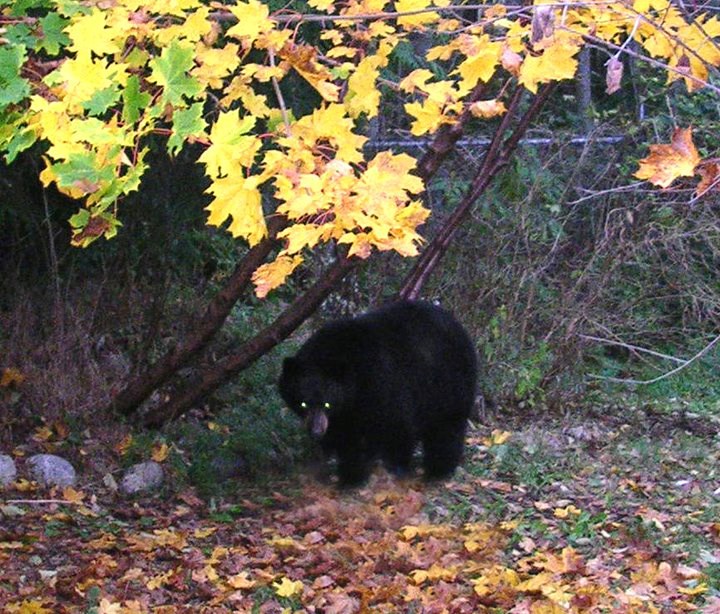In the dark of night at the top of the passenger drop-off road at the Langdale ferry terminal, I hit the brakes. Two cars behind me did so too, as a bear and her cub crossed the road.
I had thought all bears would be hibernating, but soon I learned that another West Howe Sounder, Maura Laverty, president of the West Howe Sound Community Association, had recently seen three of them.
The mother and two cubs avoided the community composter that sits at the front of her yard. Rather, the bears milled around Laverty’s front door.
That prompted me to call naturalist Frank Ritcey, provincial coordinator of WildSafe BC, for an explanation. He said bears remain awake on the Coast, searching for winter dens.
Given the mild weather lately, they will probably begin to hibernate a week before Christmas, he said. As they roam West Howe Sound in the lead-up to the holidays, they will be unlikely to break into houses, ravaging for food.
From mid-August through the beginning of October, bears undergo hyperphagia, which means they’re ravenous, trying to fatten up for the winter, Ritcey said. By this time of year, they no longer have the munchies.
Once they snuggle into their dens, their body temperature will dip and they will sleep deeply until March or April, Ritcey said. They don’t want to need to wake up to pee or to poop in the woods, so to speak.
So if you’re planning to dump food waste into a composter, you’re unlikely to attract bears, especially if you’re using the community composter in front of Laverty’s home on Thompson Road in Langdale. Besides the bears’ flagging appetite, the composter is bear proof.
But hurry: the composter has only a week or two left before it will be full, Laverty said. That will end the third trial run of the West Howe Sound Community Association’s community composter, since its start-up in July.
A recent $530 grant from the Sunshine Coast Regional District will go toward expanding the composter program. One of the goals is to spread the word on how to convert organic waste into compost efficiently and cooperatively.
In the meantime, the WHSCA is looking for a location where it can move the composter. The site should be a flat, one-by-two-metre space on private property, ideally next to a road. If you’d like to volunteer a location, contact the association at westhowe
[email protected].
As for the bears, “We’re out of the woods,” Ritcey said. But he warned that mother bears will continue to protect their young, which are almost 11 months old.
New cubs are always born at the end of January, he said. (By the way, did you know that bears give birth while asleep? How easy is that?)
Please send your news of West Howe Sound to [email protected].



